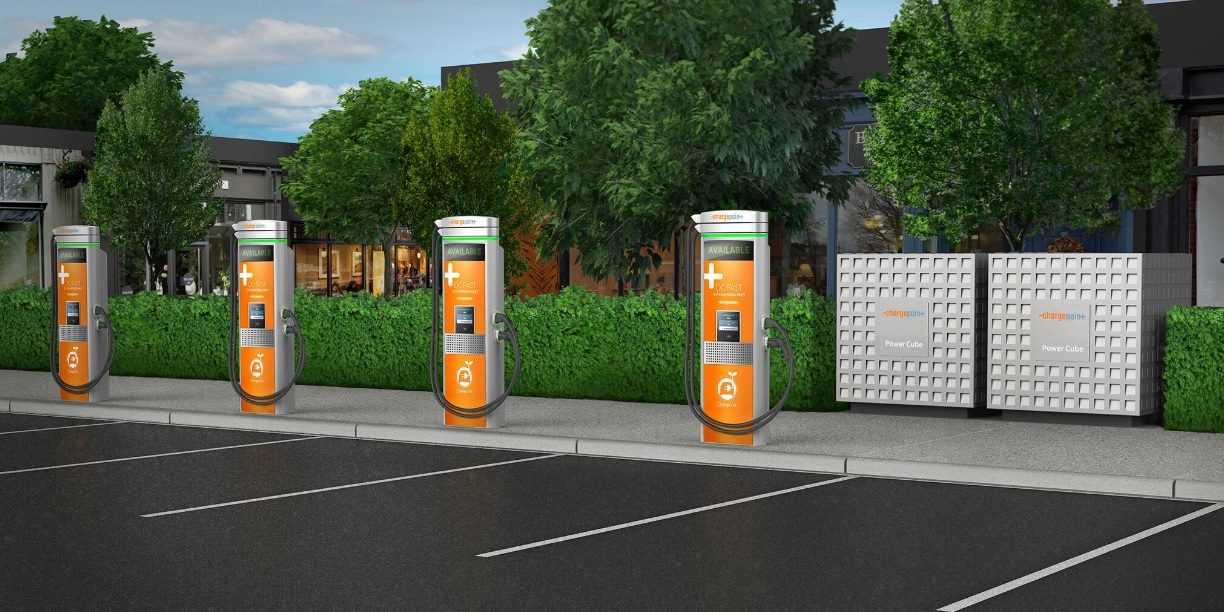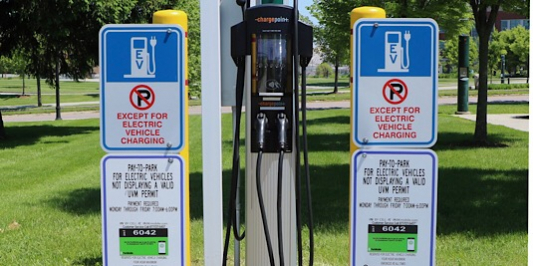
The federal tax credit has been updated to reflect the popularity of Toyota's RAV4 Hybrid. The Toyota RAV4 Prime plug-in hybrid electric vehicle was previously excluded from the credit, but that will change on August 16, 2022. The credit will not be extended to the new model. Future buyers can still claim it.
The size of the battery, location of the final assembly and sales prices determine the tax credit. In general, the credit you will get is based on the amount of power that the battery can hold. Keep in mind that the credit only applies to taxes owed during the year you purchased your vehicle.
The credit may end at some point in the future. At the moment, only the Prius Prime Toyota model is eligible for full credit. Its EPA-estimated fuel economy is 40 miles per gallon (mpg) in combined driving.

The credit can only be used for 200,000 units. The Biden Administration could consider increasing this limit and could even reverse the phaseout period. The tax credit may be extended for a few more years, but it will not be available to people who purchase a new Toyota.
Hybrids have a tax credit that is great for incentivizing you to purchase one. It comes in the form a nonrefundable tax credit, up to $7,000. The credit can only be claimed once in a person's lifetime, and is not transferable. In order to claim the credit, you must fill out IRS Form 8936. This form must be submitted together with your federal taxes.
The Prius Prime is an excellent example of a plug and play hybrid. It is equipped with a lithium-ion battery pack that can deliver a range of up to 37 miles. To be eligible for the credit, the battery must hold at least seven kilowatt-hours of electricity. You must also have the vehicle assembled in the United States.
The Toyota RAV4 hybrid is a stout performer in the plug-in hybrid market. The RAV4 hybrid is the most popular plug-in hybrid in America. The vehicle is very efficient in terms of fuel consumption and the price is quite reasonable when compared to other plugs-ins. Although the hybrid system isn't as economical as the RAV4 prime, it is an excellent option for anyone who wants gas savings. The hybrid system can cut fuel costs more than half. Buying the RAV4 hybrid in 2021 could be a smart decision for any buyer.

Over the next five year, the federal EV credit tax credit will gradually be phased out. The credit will gradually drop to $1,875 before 2023. The RAV4 Prime is still a good deal. Even without the federal credit, the Toyota RAV4 still makes a good purchase.
FAQ
Does it really matter what college I choose?
Non, really. There is no difference between colleges in terms of how to get into the automobile industry. There are some schools that offer more specific programs than others.
What is the best way to learn about car mechanics
Auto mechanics don't require any knowledge. The only thing you need is the ability to fix them. This is why most people get started with simple jobs such as changing brake pads or tires. Then they move on to more difficult repairs.
You'll need the ability to read and understand diagrams and to follow simple rules of good practise. You'll also need to be able to judge whether parts need replacing or repairing.
It is important to understand that vehicle repairs should only be attempted by those who have received the proper training. This is especially important if you work with expensive parts such as transmissions or engines.
Even though you won’t need to know much more about cars, you will still need to have an in-depth understanding of mechanics and physics. This means understanding the principles behind how engines work and how brakes function.
You should also be ready to handle all kinds of situations. If your vehicle has been in an accident, you might need to be able to handle it. Experience with accidents and breakdowns is also a must.
You should also be open to learning quickly. In order to be able diagnose and fix problems, you will also need to know how to do simple maintenance tasks such tightening bolts.
Is it worth being a mechanic.
The answer to that question depends on what your life purpose is. If you're looking for money, then it's true. But, if there are meaning and purpose in your life, then it's not.
If you don’t possess any mechanics skills, you won’t be able to do it. It will not make you rich. It will not make you famous. And it's unlikely to change your life.
It would take you years to learn how to do everything correctly. Also, you would need to hire someone else to fix it if it broke down. Most people won't bother to do it. They find something better to do instead.
To sum up, if you want to earn lots of money then go ahead. If you are looking for a fulfilling life, however, then stay clear of the mechanics' industry.
What are the requirements for an automotive technician?
You must have completed high school or GED with good grades in maths and English. Also, you must be able read and write. To be allowed to work, you must pass a written and practical test.
Is automotive mechanic a promising career?
For those who are passionate about excellence, automotive is a rewarding industry. This field requires hard work and the willingness to learn from others.
Communication skills are important as customers and coworkers will often be your main focus. You will need to be able and willing travel for work, making it more difficult to commute.
You can take classes at universities and community colleges if you are interested in a career as an automotive technician. Many schools have programs that are specifically tailored for students who are interested in automotive sales, repair, and customer service.
Mechanical engineering is a good choice if you are interested in pursuing a degree. It's possible to get a bachelor's degree in just four years.
Many companies will hire students straight out of college. Therefore, it is a good idea to look for employment while still pursuing part-time studies.
After you complete your education, you may need to undergo some type of training before you can become an automotive technician.
This means you'll need pass exams like the Automotive Services Excellence (ASE), certification exam. This test covers topics including engine maintenance, brakes, steering systems, suspension, and more.
Once you pass the ASE test, your license can be applied for by the National Institute for Automotive Service Excellence.
You can repair vehicles owned by private citizens with a license. You'll get compensation based on the amount of services you perform.
It's important to note that not all states require licensing. However, if you plan to work outside your home state, you'll need to obtain a license.
Some states don’t issue licenses until a certain amount has been completed. If you are one of these people, you might need to look for another alternative.
What length is an automotive mechanic apprenticeship?
An automotive mechanic apprenticeship takes around three years to complete. It includes two years of school and two years as an apprentice. The first year is dedicated to learning the theory and practical skills of the trade. This year, you will also learn how to safely and efficiently use tools. After the completion of the first year, you will spend another year on the job training. Here you'll gain valuable experience in different trades. These years will offer you the opportunity to attend formal classes.
The final year is dedicated to earning certifications and qualifications in the field. These include NVQs. They are awarded after passing exams on specific topics within the industry. There are also HNCs (Higher National Certificates), which cover general subjects like management, business administration, customer service, and more. City & Guilds certificates can be obtained for individuals who want to learn certain trades.
Is it difficult to find a job as a mechanic in the automotive industry?
Yes, it can be very easy. Garages often advertise their jobs online and people just apply because it seems fun. If you want to get your foot in the door, you should try applying for a few places and see if they accept student applications. Another option is to ask family members and friends if anyone works in this industry. They may be happy to recommend someone.
Statistics
- Apprentice mechanics earn significantly less hourly than mechanics who have completed training, with a median wage of approximately $14.50 an hour, according to PayScale. (jobhero.com)
- 52% of Mechanics in the United States think their salaries are enough for the cost of living in their area. (indeed.com)
- According to the BLS, total auto technician employment is expected to exceed 705,000 by 2030. (uti.edu)
External Links
How To
How to Become an Auto Technician
An automotive technician provides repair services and maintenance to vehicles. He/she works at car dealerships, auto shops, garages, service centers, etc. Customers can rely on him/her to fix their cars, trucks and motorcycles. An automotive technician must be capable of diagnosing problems and making repairs safely, accurately and efficiently.
An associate degree from a vocational school is required for anyone who wishes to become an automotive technician. After completing this program, he/she must pass the National Institute for Automotive Service Excellence (ASE) certification exam. ASE stands in for American Society of Mechanical Engineers. There are two sections to the ASE certification test. The first section tests your mechanical skills, while the second tests your practical knowledge. You will need to attend an authorized testing site in order to pass the test. These locations can be found online or at your local auto dealer.
After passing the exam, a candidate must take a state exam before being licensed as an automobile technician. The process will vary depending on where an applicant lives. Some states require that candidates attend training courses, while others permit them to learn independently. Some states permit technicians to work immediately after they are granted their license. Others require them to wait at least six consecutive months before they can be licensed.
To become an automotive technician, one must apply at a local dealership. New employees are usually apprentices when they first get hired. Apprenticeship programs usually last three years. The apprenticeship program teaches students how to change oil, adjust brakes, replace tires, clean spark plugs, inspect engine compartments, and perform routine maintenance. Advanced repairs can be done by some students, including replacing shocks, installing air filters and repairing engines. Most schools offer classes during regular business hours. Some schools also offer evening classes when needed.
Once a student is done with his/her apprenticeship he/she can become a master journeyman. Journeymen can spend up to five years learning how major systems work, including transmissions, differentials. They also learn how to adjust steering gear and suspensions. They are also taught how to troubleshoot electrical components and remanufacture engines. Many employers prefer to hire Journeymen because they understand the job well.
A candidate who passes all the necessary exams and gets a license might be interested in opening his/her own business. According to Bureau of Labor Statistics, there were almost 1.7 million available jobs in the automotive mechanic field in 2010. The Bureau of Labor Statistics predicted that this number would rise by 18% from 2009 to 2020. If a candidate decides to open his/her own shop, he/she should prepare to invest many thousands of dollars in equipment and supplies.
The salary for an automotive technician depends on several factors, including the type of employer, location, education level, and experience. A jobless person can expect to make $20,000 per year. Someone who has only a highschool diploma could earn around 21,000 dollars per year. Associate's degrees earn approximately $24,000 per annum. Technicians with a bachelor's degree earn about $27,000 per annum. Master's degree holders make around $32,000 annually. Salary increases are common, so a professional who earns less than $30,000 now could reasonably expect to earn $40,000 or more in just a few years.